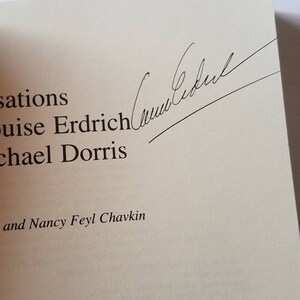

Not only does this novel reference a lot of recent literature from Ferrante's “The Days of Abandonment” to “Black Leopard, Red Wolf” but it also includes idiosyncratic lists of books from 'Short Perfect Novels' to 'Tookie's Pandemic Reading'. Tookie also frequently pokes fun at the pointed reasons which bring customers into the shop. the common reference of “Indian burial grounds” in ghost stories. While raising a problematic attitude connected with liberal white society, this is also a playful and ingenious narrative twist on a familiar outdated trope of American storytelling which frequently invoked Indigenous stereotypes for the sake of comedy or horror – i.e. Flora was a well-meaning and open-hearted individual who frequently spent time in the shop, but she possessed the “wannabe” characteristic of a white woman who likes to imagine she possesses Native American heritage. The specific sounds and messy habits of this woman were well known to Tookie so she's immediately able to identify whose invisible presence is browsing the bookshelves. But her peaceful days are disturbed when a deceased customer named Flora starts haunting the bookshop. She's established a relatively stable life after extending her teenage habits into her 30s and serving time in prison for a bizarre crime. Tookie, the protagonist of “The Sentence”, works in a Minneapolis bookshop. It's difficult not to fall in love with a novel so firmly rooted in a love of books.


 0 kommentar(er)
0 kommentar(er)
